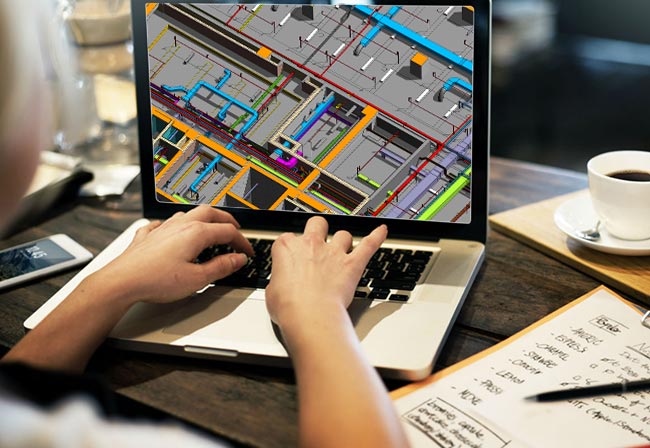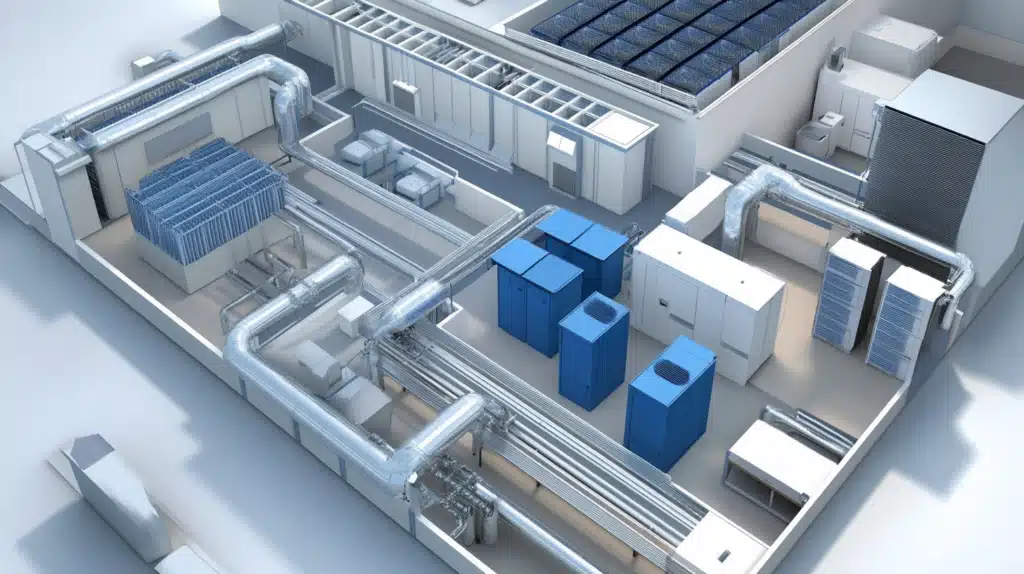In today’s fast-paced global business environment, companies must create an ambient environment inside the building for employee and customer comfort.
For this, Heating, ventilation, and air conditioning (HVAC) systems are used, which naturally improve comfort and productivity. Knowing how HVAC design services tailor solutions for companies will help decision-makers run their operations more efficiently.
HVAC Design Services Explained

An HVAC design service refers to professional entities designing heating, ventilation, and air conditioning services for businesses based on specific needs. These services evaluate different parameters, such as the size of the building, its prominence, and local meteorological scenarios.
Since no two businesses are the same, HVAC companies strive to provide solutions that make operations more efficient and environmentally friendly.
Why Customization Matters
Each business is different, with different spatial structures, occupancy, and hours of operation. Customization guarantees that HVAC systems match these factors accurately.
Customized systems provide a more efficient energy consumption pattern, thereby reducing costs and lowering the carbon footprint. Moreover, custom solutions enhance indoor air quality, which has a direct impact on employee health and productivity.
Assessing Business Needs
Experts say business requirements must be assessed before an HVAC system is designed. That includes reviewing things like building types, insulation amounts, and installed equipment.
After studying these aspects, professionals can decipher which technology and configuration will work best for their system. Such an assessment not only takes current and immediate needs into account but also evaluates future scalability options.
Choosing the Appropriate Technology
Several HVAC technologies are being offered due to technological advancement. Whether it is energy-efficient heat pumps or ever-evolving climate control systems, choosing the right technology remains a critical decision.
When looking for the best option, professionals consider alternatives that provide high efficiency, reliability, and minimum maintenance cost. The integration of other smart technologies leads to automation and remote monitoring, giving control and flexibility to businesses.
Energy Efficiency and Sustainability
For most organizations now, sustainability has become the focal point. Energy-efficient solutions that comply with sustainability goals are emphasized in HVAC design services. Futuristic energy-saving technology lowers operating costs and carbon footprint and improves the brand image of a firm. Optimized systems help achieve compliance with environmental laws and certifications.
Enhancing Indoor Air Quality
Indoor air quality and its direct impact on the well-being of a building’s occupants have been gaining importance. Poor air quality causes health problems, lowers productivity, and leads to absenteeism. HVAC systems feature sophisticated filtration and ventilation processes that ensure the highest-quality air is circulated in office spaces. These improvements facilitate a healthy office atmosphere and maintain a good work environment.
Systems Integration Considerations
Integrating HVAC systems with existing building management systems has many benefits. Integrating energy generation and consumption enables centralized control, monitoring, and energy management. This coordination leads to high operation efficiency and simple upkeep, allowing businesses to maximize their systems’ performance with negligible interruption to day-to-day operations.
Maintenance and Support
HVAC systems require continuous support and maintenance to provide optimal services over the years. Regular inspections, preventive maintenance, and prompt service refreshes come with professional services. These practices ensure that systems are running at optimal levels so that untimely failures are least likely to happen. Most people prefer long-term partnerships with design services to bring consistency to a system and ensure improvements.
Financial Considerations
Implementing an individualized HVAC solution comes at a cost. The cost is often higher at the outset compared to standard systems. Yet lower energy consumption and maintenance costs often offset initial expenditures in the long run. HVAC investments require good strategic planning and budgeting.
Conclusion
HVAC design services are customized according to business needs and focus on efficiency, sustainability, and indoor comfort. These services improve operational efficiency by understanding specific requirements and proper technology selection.
This is achieved by acquiring customized HVAC systems that ultimately result in both cost savings and a better, healthier, and more productive work environment. Business entities that pay attention to these factors stand to gain from a comfortable work environment that increases team productivity and facilitates growth amidst competition today.
















